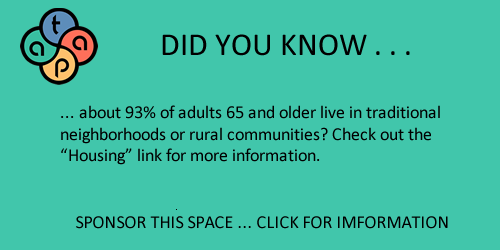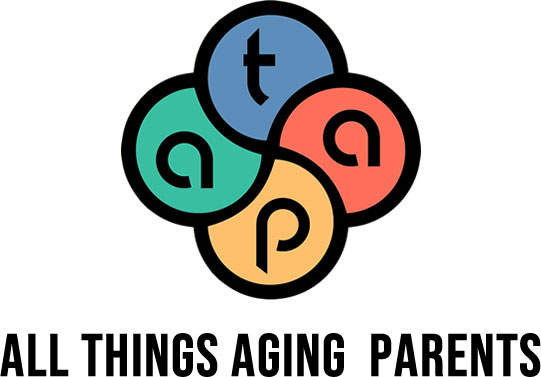In addition to the tasks of caregiving, there are many other challenges that follow. One of the biggest challenges is the emotional impact on the primary caregiver, the one receiving the care, and other family members. Each person will have their own reaction to this new situation. Sometimes it is difficult for the primary caregiver to accept the strong emotional reactions of other family members to the changes they see happening. It is important to recognize that they are not outsiders, but participants with different roles. When the family works together as a whole both the primary caregiver and the one receiving care feel supported. It helps to keep all family members included and informed about situations.
Often, however, caring for an aging parent can lead to family conflict. Sometimes it feels as though there is an uneven distribution of work or an assumption that a certain family member will be the caregiver. The caregiver can feel resentful for having to take on that role, but also feel guilty for feeling resentful. Occasionally a family should consider bringing in a family mediator to help facilitate a family meeting to make decisions about distribution of labor. These professionals can help to find common ground, explore possible solutions, and help bring resolution to the conflict.
Some of the biggest challenges and risks are a result of trying to balance caregiving responsibilities with the rest of your life – husband/wife and kids, work, finances, your own physical health, and social life. All of these fall into the category of "caregiver stress" or "caregiver burden."


No one will deny that caregiving is hard. When you add in your other responsibilities - your job, your husband/wife and children, friends, siblings, and all the other details of your life - you will be overwhelmed. You are trying to keep all those plates spinning and not let any one of them fall. This takes a heavy toll on you – physically, emotionally, mentally, spiritually, socially.
Guilt: Honestly, for a caregiver, guilt is such a pervasive feeling that it deserves a section only on this. “I feel like I’m not doing anything well.” Sometimes you will feel frustration with other family members who don’t (or can’t) help. People say things, intentionally or unintentionally, that make you feel guilty. “Why isn’t he doing his exercises? Don’t you realize that without this physical therapy his condition will only get worse?” “You might want to think about cleaning that bathroom sometime.” Face it, people don’t think about what you are going through, and sometimes people are just not nice. You are just trying to make it through the week, and they want you to force Dad to exercise?! Good luck with that!
No one even has to say anything. You just can’t seem to get everything done and keep everyone happy, and you feel like a failure. You’ve only got 24 hours in a day, and you’re trying to balance caregiving with a job, a family, a social life (yeah, right) and everything else you do. It feels like an impossible task. Sometimes you feel ambivalent about caregiving (“I didn’t ask for this job.”) or even about the one receiving care. In my own journey of caregiving I decided that yes, I was going to feel guilty. Just suck it up, get used to it, and move on. Probably not the healthiest of ways to deal with guilt, but I was able to cope by stuffing everything down into that “accepting guilt” box. But something transforming happened with a counselor told me this,
“You need to learn to reframe guilt as regret.”
Of course, you regret that Mom or Dad has dementia or a chronic illness! That would make anyone sad or angry, but in a caregiver it often manifests as guilt. But you haven't done anything wrong, and you are allowed to feel the whole range of human emotions. And if their needs exceed your ability to care for them, you will regret that they need to move to a care facility, but you have no guilt for doing anything wrong.
Ambiguous Loss: Sometimes as a caregiver you will feel sad or depressed, without motivation, and you may not be able to pinpoint why. Sometimes the answer is that you are experiencing loss and grief, without a specific obvious cause. Ambiguous loss is a feeling of loss, simply because things are not the way they used to be. Mom or Dad is declining and there’s nothing you can do about it. Or maybe you are (subconsciously) grieving the fact that your parent just isn’t who (s)he used to be. Small losses can bring about this sense of ambiguous loss, as well. Your mother, who used to always keep her makeup perfect, may now forget to brush her hair. Your father, who used to be a football fan, has now lost interest in watching the game. Putting a name to these feelings can help you move through the grieving process. Sometimes we experience anticipatory grief, seeing signs that our parent’s end is in sight. We haven't lost them completely yet, but we see it coming (or we see incremental losses), and we grieve. These feelings are completely normal but remember not to judge other family members who may not be feeling the same thing.
Of course, there are lots of other manifestations of this caregiver burden. Here is a list of other common symptoms:
- Stress and depression, anxiety disorders (This is even more prevalent in women.)
- Feeling overwhelmed
- Feeling alone, isolated, or deserted by others
- Sleeping too much or too little
- Feeling tired most of the time
- Losing interest in activities you used to enjoy
- Becoming easily irritated or angered
- Alcohol, tobacco, or drug abuse
- Pain (muscle or joint pain) or headaches
- Weakened immune system
- Obesity, or weight loss
- Heartburn
- Problems with short term memory or paying attention
- Heart disease, like high blood pressure, high cholesterol, or heart attack
- Other diseases, like diabetes, cancer, or infection
I want you to see that what you are experiencing in caregiver stress is normal. These are symptoms that you can find in almost any resource on caregiving. Other people are feeling the same thing as you are – you are not on your own! We are holistic beings, and when we are carrying such a load of stress it affects our entire being – body and soul. Note that we are not just talking about mental or emotional stress, but about literal physical diseases that can come about as a result of stress.
It is important that you make wellness a priority, especially in light of the risk of disease that is mentioned above. You can’t care for others if you are a wreck yourself. Here are some tips to help:
- Eat a balanced diet
- Exercise
- Get plenty of rest
- Get regular checkups with your doctor (Make sure (s)he knows you are a caregiver and talk about any symptoms of depression or sickness you have.)
- Avoid alcohol, tobacco and drug use
- Do something that is life-giving for you (Keep music or a book on your phone that you can read or listen to while you wait in line. Go on a date. Meet friends for coffee. Golf. Take time for you.)
- Ask for and accept help (Keep a list handy of ways people can help. If someone offers to help, let them choose something from the list.)
- Learn ways to better help your parents (some hospitals offer classes to teach you how to care for those with chronic disease). You can check with your Area Agency on Aging.
- Join a support group for caregivers (see below under Supports for Caregivers)
If you are looking for a quick fix – nothing permanent, but something to help you make it through the next 3 hours – look at this article that has some practices you can do in the moment.
Sometimes communication can be the hardest task of all. You feel like you are explaining things in a logical way, but Mom or Dad just doesn’t seem to understand. There is a gap between logical thinking and emotional thinking, and you are encountering the disconnect. You may be on the logical side sometimes, and then slide seamlessly onto the emotional side, and your parents may do the same.
Looking at things from your parent’s perspective, here is what (s)he may be facing: physical decline, being in pain, the frustration of not being able to do tasks that they used to, worry about losing their independence, losing their dignity, and maybe not having enough money to live on. And all of this is without the added challenge of declining cognitive function. The issue of independence seems to be a key battleground. The big issues in this arena are money, driving (almost synonymous with independence), and supervision (for those with dementia). We need to remember that older adults who do not have dementia and who are cognitively competent have the right to make decisions, even “bad” decisions. On the other hand, caregivers also have the right not to go along with those decisions. They can draw boundary lines about what they will and will not do. The most important thing is for both sides to listen to one another.
Some foundational keys to remember when communicating with your parents are:
- Treat them with the respect and dignity due to any adult, even if they are suffering cognitive loss from dementia.
- Foster their independence and dignity by including them in decision making as much as possible.
There are also many physical things that can also affect your communication with your parents. About 1 out of 3 adults over age 60 have some hearing loss, and 50% of those over age 85 have significant loss. This loss can slow the person’s ability to process what is being said. It doesn’t mean they cannot understand, just that the process is a bit slower. Here’s a hint if your parent is not hearing well: do not talk in a louder voice, that raises the pitch of your voice and makes it even more difficult for them to hear. Try talking in a deeper voice (lower pitch), as it is the higher frequency sounds that will be lost first. Also, try to eliminate background noise as much as possible. Not all of communication is verbal, so your parent’s vision can also come into play. Have your conversations in a well-lit room, but without glare. This way they can “read” your non-verbal communication as well, and sometimes people will compensate for hearing loss by reading lips, which is difficult in a dark setting.
Communication can sometimes be a difficult balancing act – remembering to speak in a lower tone, accommodating for a slower processing speed – but at the same time, remembering to treat them with respect and dignity. Slower processing does not mean they have lost cognitive ability. Even if they have dementia they remain worthy of respect and should be treated that way.
Here is a list of suggestions on how to better communicate with your parents:
- Always treat them with respect, even when you are frustrated
- Ask questions and listen for the answers – don’t assume you know what they are thinking
- Watch out for your non-verbal communication
- Minimize distractions and background noise
- Don’t mutter or cover your lips
- If you are presenting information to them, give them written materials to consider with no time constraints
- Simplify information if possible – simple words, short sentences
Information about how to communicate with people with dementia is found under the Dementia/Alzheimer’s Section.
I read the following list somewhere at the point of my greatest need in dealing with my father, and it became a lifeline to me. I printed this out and taped it to my desk where I could read it many times each day.
- Remain calm: Don’t argue or try to reason. Take a deep breath before you act.
- Respond to feelings: Validate how your loved one seems to be feeling at the time.
- Reassure: Remind your loved one that (s)he is safe and cared for.
- Remove: Remove yourself physically or distance yourself psychologically for a moment to regain your composure.
- Return: Return fully to the situation when your loved one begins to calm down.
Remember, no matter how hard you try, you can never separate the emotional connection to your loved one from the irrational behaviors, but you can try your best to respond in a manner that won’t worsen the situation.
Some parents are not easy to get along with, either because of cognitive impairment or just their personality. People can be toxic – abusive, belligerent, or combative. Often this stems from their frustration at what their life has become, and they spew their anger on the ones closest to them. This can be exhausting for the one who has to deal with them. Common responses are anger, guilt, depression, exhaustion, and anxiety.
With toxic individuals, you will need to set boundaries to maintain your own emotional health. Boundaries define your emotional limits. Define what you will and will not accept in their behavior, and step away (physically or psychologically) if necessary to enforce the boundary. Sometimes it is enough to point out that they are alienating the one they need the most. If you can calmly explain the boundary of what you will and will not tolerate, they may at least make an effort to change.
If the toxic behavior is caused by Alzheimer’s Disease or dementia recognize that your parent doesn’t have full control over what they are saying or doing. It is not your fault, and not much you can do will change things. Your best bet is to remain as calm and reassuring as possible in their presence. You can vent your feelings after you leave, as you find a healthy release for them.
Here are some additional suggestions if your parent seems determined to make your life as difficult as possible:
- Let them (not you) own their behavior, and respect that you can’t “fix” them
- Center yourself - acknowledge your feelings, then put them aside and do what needs to be done
- Accept that they are toxic and try to understand them from that framework
- Listening and observation can be more helpful than questions
- Do not lie to a toxic parent – mean what you say
- Try distraction
- Be gentle but strong – set boundaries and stick to them
- Don’t beat yourself up
Again, if you need something to help you make it through this day, look at this article that has some practices you can do in the moment.
Resources:
Family Meditation: https://apfmnet.org/frequently-asked-questions-about-family-mediation/
Caregiver Stress:
- https://www.womenshealth.gov/a-z-topics/caregiver-stress#11
- https://www.caregiver.org/caregiving-and-ambiguous-loss
- https://www.helpguide.org/articles/stress/caregiver-stress-and-burnout.htm/ (This article takes a different approach to caregiver stress, so if you are looking for something different, read this.)
Communicating with Aging Parents:
https://aging.arizona.edu/sites/aging/files/activity_1_reading_1.pdf
Caregiver Training for Those with Dementia:
https://dementia-care-advocates.teachable.com/
Dealing with Difficult Adults:



















